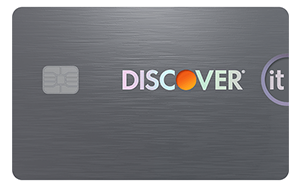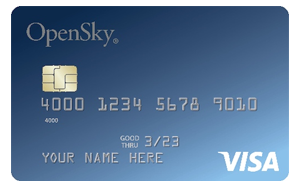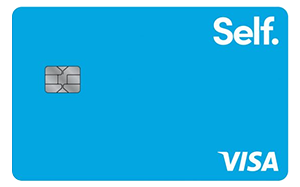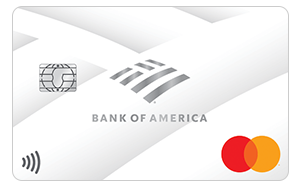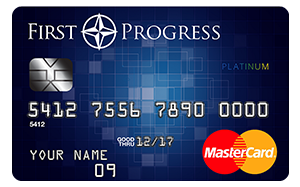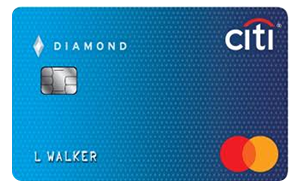Table of Contents
3 ways to get a repossession off your credit report
A repossession is a negative mark on your credit report that indicates that a creditor or debt collector seized an asset from you, such as a vehicle.
This typically happens if you’ve missed a number of payments on a loan. In most cases, your lender will sell the asset to pay for some or all of your overdue debt. 1
There are three ways to remove a repossession from your credit report:
- Filing a dispute with the credit bureaus or your creditor
- Negotiating with your creditor
- Hiring a credit repair company
1. If the repossession is invalid: file a dispute
Sometimes a repossession might appear on your credit report by mistake (for example, if the credit bureaus mixed you up with someone who has a similar name and Social Security number).
If this happens, dispute the item on your credit report.
How to dispute a repossession in 6 steps
To dispute a repossession on your credit report, follow these steps:
-
- Get free copies of your credit reports from the major credit bureaus (Experian, Equifax, and TransUnion) at AnnualCreditReport.com. If one bureau incorrectly reported a repossession on your credit history, the other two might also have done so, and you’ll need to correct all three.
- On a copy of each report, circle the repossession you want removed. It’s also a good idea to check for other errors. In particular, look for other negative marks on your payment history, such as late payments that you actually paid on time.
- Collect and make copies of documents supporting your claim that the repossession should be changed—for example, payment records, account statements, and correspondences with the lender.
- Write a letter asking the credit bureaus to remove or correct the repossession and any other errors you found. The letter should include:
- Your complete name and address
- Details of the repossession and the other mistakes you want fixed (if there are any)
- Copies (not originals) of documents supporting your request
- Copies of your credit reports with the mistakes circled

Repossession Dispute Letter to Credit Bureau
Use this repossession dispute letter template to dispute an invalid repossession with one of the three main credit bureaus that produce your credit reports (Experian, Equifax, or TransUnion).
- Use certified mail to send a dispute letter to each credit bureau that you want to make corrections. Pay for a return receipt so that you have a record that the credit bureaus got your letter, and send a copy of the letter to the company that carried out the repossession. You should also save a copy for yourself. This guarantees that everyone concerned has all of the necessary information.
- Wait for 30 days to get a written response from the credit bureaus. During this time, each bureau will conduct an investigation and get your creditor to confirm your repossession.
- Over the next few months, monitor your credit reports to see whether the repossession was removed. The credit bureaus will do this if your creditor agrees that the repossession was an error or if they’re unable to verify its accuracy.
Disputing a repossession with the business that reported it
Alternatively, you can address your dispute directly to the business that reported the repossession. You may want to try this if you have problems getting the credit bureaus themselves to remove the incorrect information.
If you do this, send the business a letter to say that you’re disputing an error they reported to the credit bureaus. Include the same documentation that you’d have sent to the credit bureaus:
- Your complete name and address
- Details identifying the repossession that you want removed
- An explanation of why you believe it’s invalid
- Copies (not originals) of documents supporting your dispute

Repossession Dispute Letter to Lender
You can also use this repossession dispute letter template to file a direct dispute with your original creditor or lender if you believe the mistake originated with them.
Check your lender’s website or call them to find the correct address to send your letter. (Businesses sometimes have a particular address that they prefer to receive disputes at.) 2
2. If the repossession is valid: negotiate with your creditor
If the repossession is legitimate, you won’t be able to remove it by disputing it.
However, you might be able to negotiate with your creditor to remove the negative mark from your credit report. You can begin negotiating either before or after your property is repossessed.
Negotiating after your property has been repossessed
Creditors don’t always make enough profit to cover your debts when they sell your repossessed property. This means that you might still owe money afterwards. When this happens, it’s known as a “deficiency.” 1
If this happens to you, you can propose a deal where you’ll pay off the remaining balance of your loan in exchange for your creditor removing the negative mark from your credit report. This is a negotiation strategy called pay for delete.
If you succeed in negotiating pay for delete, ask for the details in writing before making any payments. Otherwise, you might have trouble enforcing the agreement.
Note that if you act quickly enough, you might actually be able to get your repossessed car back if you’re able to pay what you owe shortly after the repo.
Negotiating with your creditor before your property is repossessed
Needless to say, if you’re able to negotiate with your creditor to avoid the repossession entirely, do so. It’s much easier (and less stressful) than trying to get it removed from your credit history afterwards.
You may be able to convince your creditor to give you more favorable terms that will make it easier to pay off your loan (e.g., a longer term with smaller monthly payments). It’s more convenient for creditors to receive cash than to take your property and sell it, so they have an incentive to work with you.
If that’s not possible, you can ask your lender whether they can waive any remaining debt you have if you turn over your property voluntarily. 3 This won’t stop them from adding the repossession to your credit report, but it will prevent them from adding more negative marks later (such as further missed payments or a collection account).
Lenders save time and money by not having to forcibly repossess your property, which means they may offer incentives for you to voluntarily surrender it. If you can’t get your lender to waive your deficiency entirely, you may be able to negotiate a reduction, which will make it easier to pay off.
If your creditor agrees to waive or reduce your deficiency, make sure to get the agreement in writing. You should do this any time you negotiate a deal with a creditor or debt collection agency.
3. If you’re feeling lost: hire a credit repair company
A professional credit repair company may be able to help you remove the repossession from your credit report.
Credit repair companies negotiate with creditors and debt collectors on your behalf (e.g., by sending dispute letters for you). They don’t do anything that you can’t do for yourself, but they’re a good option if you’re feeling overwhelmed and you need help.
Before you hire a specialist, make sure you understand the pros and cons of credit repair. Hiring a credit repair company costs money, and the process can take a while (if it’s successful at all, which isn’t guaranteed). In many cases, professional credit repair can take 6 months or even more, and since many credit repair companies operate on a subscription model, that means you’ll be paying them for a while. Make sure there’s room in your budget before you commit to this option.
Credit repair scams are also common. 4 According to the Credit Repair Organizations Act, credit repair companies cannot charge you for their services upfront; if one asks you for money in advance, they’re violating the law, and you should hire a different company. 5
What does a repossession do to your credit?
If you get a repossession on your credit report, you’ll suffer a significant drop in your credit score. Because it suggests that you’re struggling to meet your financial obligations, the credit scoring companies, FICO and VantageScore, believe that it makes you a risky borrower.
How badly does a repossession hurt your credit?
A repossession may severely hurt your credit. VantageScore notes that “severe delinquency and derogatory events generally result in a decline of more than 100 points.” 6 It’s unclear whether a repossession counts as a “severe delinquency or derogatory event,” but it seems likely. Experian notes that a repo “will have a serious impact on your credit score for as long as it stays on your credit report.” 7
The exact degree of damage that a repossession will inflict on your score depends on several factors. Most notably, if your score is lower to begin with, black marks like repossessions will have less effect on it, whereas if your score is higher, these items will have a greater effect. 8
Because repossessions are so harmful, it’s well worth trying to get them removed from your credit report. Doing so could increase your score by 100 points or more.
How long does a repo stay on your credit report?
Repossessions stay on your credit report for seven years. As with all negative marks on your credit history, the effect will gradually fade over time until the item falls off your report entirely.
Do involuntary repossessions hurt your credit score more than voluntary ones?
Involuntary repossessions may hurt your credit score more than voluntary repossessions. Some government-sponsored educational materials claim that this is the case, but it hasn’t been confirmed by either FICO or VantageScore. 9
As noted above, you may also be able to negotiate certain concessions from your creditor in return for allowing them to voluntarily repossess your property (such as clearing your remaining debt).
How to improve your credit score after a repossession
If you can’t get the repossession removed from your credit report, there are a couple of measures you can adopt to improve your credit score.
Before doing anything else, deal with any remaining debt by paying off the deficiency from the repossession. If you fail to do so, your lender may charge off the debt and sell or transfer it to a debt collection agency, which will damage your credit score even further.
Your next step is to improve other areas of your credit history to compensate for the repo:
Pay your bills on time going forward
Your payment history is the most important scoring factor in both the FICO and VantageScore scoring models. Ensure that you always make on-time payments on your other credit cards and loans to fix your credit score over time.
Get a secured credit card or a credit-builder loan
If a repo has substantially damaged your credit score, it can be hard to get new credit from lenders (which, as mentioned, is necessary to repair your score). Fortunately, you’ll still probably be able to get a secured credit card or a credit-builder loan, which are special credit accounts that present little risk for lenders and are designed to help you build your credit.
| Credit Card | Best For | Credit Score | Annual Fee | Welcome Bonus | |
|---|---|---|---|---|---|
| Secured Overall | 300–669 | $0 | Cashback Match | ||
| No Credit Check | 300–669 | $35 | |||
| Beginners | 300–669 | $25 | |||
| No Annual Fee | 300–669 | $0 | |||
| Bad Credit | 300–669 | $49 | |||
| Rebuilding Credit | 300–669 | $0 | |||
Lower your credit utilization rate
Your credit utilization rate, also known as your debt-to-credit ratio, is the percentage of your available credit that you’re using. As a general rule, you can improve your credit score by using less of your available credit. Try to spend less on your credit cards and always pay your bills promptly.
Takeaway: Removing a repossession from your credit report is challenging, but sometimes possible
- A repossession is a negative mark that you get on your credit report when a creditor or collection company seizes an asset from you.
- You can file a dispute to remove an incorrectly reported repossession from your credit report.
- If the repossession on your credit report is correct, you should try to remove it by negotiating with your creditor. You can do this directly, but you can also go through a credit repair company.
- A repossession will significantly decrease your credit score and stay on your credit report for up to seven years.
- To improve your credit score (if you aren’t able to delete the repossession), pay your bills on time going forward, consider getting a secured credit card or credit-builder loan, and try to lower your credit utilization rate.

